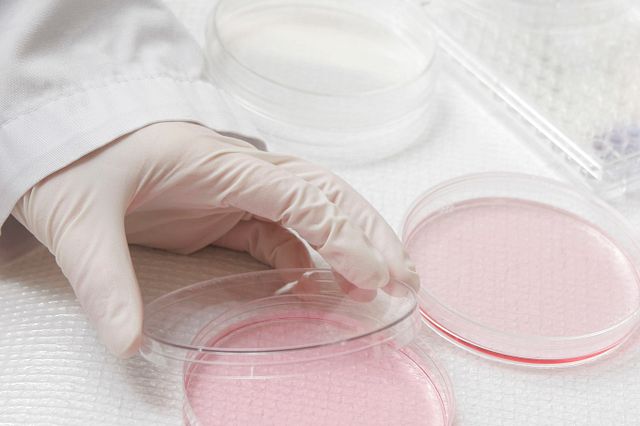ASTM F981 Assessment of Hemocompatibility for Medical Implants
The ASTM F981 standard is a pivotal tool in assessing hemocompatibility, which refers to how well medical implants interact with blood without causing adverse reactions. This assessment is crucial for ensuring that implantable devices do not induce thrombosis, embolism, or other harmful effects when they come into contact with the circulatory system. Compliance with ASTM F981 ensures that your product meets stringent requirements set forth by regulatory bodies to safeguard patient health and well-being.
The standard focuses on evaluating the potential of medical implants to cause platelet activation, leukocyte adhesion, or red blood cell damage. These parameters are critical in determining whether an implant could lead to systemic inflammatory responses or other adverse outcomes. By adhering to ASTM F981, manufacturers can demonstrate that their products meet these stringent requirements and are safe for use in the human body.
The testing procedure involves a series of detailed steps designed to simulate real-world conditions as closely as possible. Specimens undergo various tests including static blood contact studies, flow cytometry analysis, and shear stress evaluations. Each step is meticulously controlled to ensure accurate results that reflect how the implant will behave in vivo.
Static blood contact testing assesses the material's compatibility with blood under stationary conditions, providing insights into long-term stability. Flow cytometry helps identify any changes in white blood cells or platelets that might indicate an immune response upon interaction with the implant surface. Shear stress evaluations measure how well the implant can withstand the mechanical forces exerted by flowing blood, ensuring durability and reliability.
The ASTM F981 protocol is widely recognized for its comprehensive approach to evaluating hemocompatibility across different types of medical implants such as catheters, stents, heart valves, and prosthetic joints. This makes it an essential tool not only for quality assurance but also for research and development efforts aimed at improving product safety and efficacy.
By leveraging ASTM F981 during the design phase, companies can identify potential risks early on and implement necessary modifications to enhance overall performance. Post-market surveillance further benefits from this standard by providing valuable feedback about long-term usage scenarios, helping to maintain high standards even after products have been approved for commercial sale.
Compliance with ASTM F981 is a testament to your commitment to producing safe and reliable medical devices that meet international quality benchmarks. It allows you to enter competitive markets confidently while ensuring patient safety remains at the forefront of every decision made throughout the product lifecycle.
Applied Standards
| ASTM Standard | Description |
|---|---|
| F981-06(2017) | Evaluation of Hemocompatibility for Medical Devices and Implants |
| F1354-10 | Standard Practice for Selection of Materials and Methods for Testing the Biocompatibility of Medical Devices |
| F2687-19 | Evaluation of Potential Adverse Biological Effects from Blood Exposure to Implantable Medical Devices During Manufacturing |
Customer Impact and Satisfaction
- Increases confidence in product safety by meeting regulatory requirements.
- Promotes trust among healthcare providers who specify compliant products.
- Enhances reputation through consistent quality assurance practices.
- Aids in navigating complex global market regulations more efficiently.
- Supports continuous improvement efforts within R&D teams focused on innovation and safety.
International Acceptance and Recognition
The ASTM F981 standard has gained international recognition for its rigorous evaluation process. It is widely accepted by regulatory bodies around the world, including those in Europe (European Medicines Agency), Asia-Pacific region countries like Japan and South Korea, as well as various United States federal agencies responsible for healthcare regulation. Compliance with this standard not only opens doors to these markets but also signals strong adherence to global best practices.
Many prominent medical device manufacturers have incorporated ASTM F981 into their quality management systems, demonstrating a commitment to excellence in biocompatibility assessment. This widespread adoption reflects the growing emphasis on patient safety and regulatory compliance within the industry.





